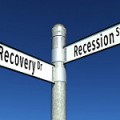Entrepreneurship Life Non-Conformity
The Normalization of Mediocrity

I recently came back to Seattle after traveling for two weeks, and began eating simple, organic food again. I’m a vegetarian wherever I go, but I don’t always eat very well when I’m out around the world. After getting back on track after all the travel and different countries, I started feeling better within 24 hours.
The next morning I walked down the street to Espresso Splendido on Stone Way for a short 2% latte, and I suddenly remembered what good coffee tastes like. I hadn’t stopped drinking coffee on my trip—coffee is one thing you can find pretty much everywhere, in one form or another—but because of factors outside my control, I had stopped drinking good coffee, and I came to accept that mediocre coffee was just the way it had to be.
Against my better judgment, I had decided that mediocrity was acceptable. It even became the standard I expected to receive.
Something has happened in our modern world that threatens our very way of living. When it comes to paying for goods and services, we have completely altered our standards of what is acceptable and what is good.
The standard of good has been replaced by good enough, which is a way of justifying the mediocre. When we encounter the good enough standard on a regular basis, we come to accept it as normal.
Think about the default response to a typical question we get asked everyday. When someone asks you about your work, your grades, that new restaurant, or your life in general, what do we tend to answer?
Not bad. It’s OK. Could be worse.
If you drink enough bad coffee, you’ll gradually get used to it. Likewise, if you never experience something genuinely good to begin with—if you never eat real food, for example—you won’t know what you’re missing.
If a trip to the Chinese buffet or sushi from the grocery store are your only experiences with “foreign” foods, you won’t wish for anything else. No, they’re not at all like good food in China or good sushi, but if you don’t know any better, they work. They are good enough.
Nowhere is this principle more true than in the domestic travel industry these days.
Think about the last flight you took, especially if you live in the U.S. or Canada. What was the best thing you could say about it? Chances are it was something like this:
- It wasn’t too late
- They didn’t lose my bag
- They gave me half a bottle of water
- The security people did not confiscate my toothpaste
Unless you’ve flown on the new Virgin America, or the rare transcontinental flight that still provides a good experience, chances are you didn’t have an experience you can rave about.
Once you get used to the mediocre, anything just a little bit better will stand out.
In some industries, such as domestic airlines, if a company can provide services slightly above the standard of terrible, they’ll have a good chance of being successful. Southwest Airlines is a good example of this phenomenon. I know that some people will disagree, but Southwest is really a mediocre airline. They have succeeded in inspiring customer loyalty in large part because they do not suck as much as the traditional U.S. carriers do. Their mission statement consists of the usual corporate platitudes, but I think it could be something simpler:
Southwest: Not as bad as your other choices
or
Southwest: The Least Bad U.S. Airline
***
The Escape Route
To reverse the acceptance of mediocrity as the new standard, the only escape route is nonconformity through setting your own example of being the anti-mediocre.
Here’s a few ways to do that, and you can probably think of more.
1. Stop rewarding bad behavior. How many restaurants do you know that stay in business for years despite bad food and poor service? Yes, some of them will fail, but others manage to carry on in their carelessness, relaxed in the knowledge that they can continue the hit-or-miss record without any consequences.
2. Refuse to settle. This is hard, because the pressure to conform to mediocrity is all around us. But the more we settle, the more we accept the triumph of the good enough instead of the excellent.
3. Challenge yourself and others away from mediocrity. Stop asking, is it good enough? and start looking to a higher goal. Encourage others in the same fashion.
4. Model excellence. People will be amazed when you do this, in large part because it’s so unusual. Here’s two examples from the corporate world:
Headsets.com –
I heard the CEO of Headsets.com speak at a recent conference. He talked about rewarding failure at the company, and letting customers choose “Bill me” on the order form without conducting full credit checks. They had determined that the very few customers who take advantage of that are more than offset by the trust gained by the large majority of honest customers.
Zappos.com –
The day before, Tony Hsieh from Zappos.com spoke about the relentless customer service they seek to provide their customers. If they can’t find a particular shoe a customer wants, their reps will even go online to their competitors and help the customer get it. If a customer calls them asking for pizza delivery options in a remote city, the rep will look it up.
Examples like this in the corporate world are remarkable. They cut against the grain of everything we have come to expect from large companies. Against the standard of mediocrity, companies like Headsets.com, Zappos.com, and others (Netflix comes to mind), these companies have decided to actually be excellent.
What the Normalization of Mediocrity Means for You
JUST GOOD ENOUGH – If you have a mediocre product or service to offer the world, you are not alone. Your business might fail, but it also might succeed as long as you do something slightly different. Excellence is no longer required.
SLIGHTLY BETTER – If you can slightly edge out mediocrity, like Southwest Airlines has done, then your chances of success are even higher. People will look at you with fresh eyes, and some of them will even become intensely loyal.
EXCELLENT – But of course, the most interesting way is to truly go above and beyond both the new standard of good enough and the slightly better standard. If you can be truly remarkable, and actually do something good… then you can rule the world.
Zappos.com sells shoes on the internet. How boring is that? But this year they are on track to become a billion-dollar company.
And what about you?
Yes, I know that many of us don’t work in cubicles, for all kinds of good reasons. But because most corporations are so mediocre, we can all learn from the rare examples when they do something right.
Do you long for excellence in a world where mediocrity has been normalized?
In your own life and work, do you strive to provide excellence to others, or have you fallen into the same trap?
###
Image by Mercurian







30 Comments
Great article. This is all true, and so sad. Thanks for the little push to rise above the norm.
Lisa
Not everyone can excel at things. Otherwise excellence would be normal. Some people must be average.
A lot of people are getting depressed over trying to achieve excellence and falling short of that mark in comparison with other people.
I guess you can achieve your own brand of excellence, but we can’t compare ourselves with everyone else. Average is good.
@Asrai—I really like what you said about “achieving your own brand of excellence.” That’s recalls Don Miguel Ruiz’ 4th Agreement: Always Do Your Best. Importantly, Ruiz goes on to say that ‘your best’ changes all the time.
For example, your best when you’re sick will differ from your best when you’re healthy. For me, my early morning best is far different from my late night best! Ruiz doesn’t seem to subscribe to the idea of comparing to each other, or even to ourselves. For him, it appears that excellence is a measure of the moment.
I think this is an encouraging and non-threatening way to approach things. The key, then, would be to prepare ourselves and our environment for doing our best, and then approach things with excellence as the process as well as the goal.
All to say, average results might come from excellent performance, but excellent results rarely come from average performance. It’s best to do our best.
I love what Chris has said here.
@Lisa @Asrai @Crystal —
Thanks for your notes! I really appreciate the feedback.
Hi Chris,
I joined the AB Forum a few days ago and have been thoroughly enjoying reading your posts here. Your concepts and ideals are to be applauded and I love your way of writing. I particularly enjoyed this post, which I think is very relevant to many areas of the music industry, and the Candlelit Notes, which reminded me of a few hotels I’ve stayed in on tours! I’m looking forward to the book next year!
Best,
Nik
Chris, this is an excellent article and really ‘awoke’ me this a.m. It is so easy to go down the path of mediocrity, and yet, it’s not something that I personally want to settle for in my life personal or work life. Thank you for the wake up call to be the best!
This post is exactly what I have been thinking about recently due to a series of incidents that happened in my life with people I know. It’s like people’s standards of what is acceptable, decent behaviour have sunk so low that it is now normal. When I compare this against my ideal of striving for something better, it makes me feel like I’m fighting against the world and reading this post made me feel a whole lot better that at least someone out there sees the deterioration into mediocrity as something that should be stopped. Keep up the good work!
Excellent post and plenty of food for though. Isn’t mediocre by definition “average” so anything that consistently beats average can’t be mediocre? I guess it would depend on the criteria going to use.
So can I comment on your Southwest example? Airlines in general are easy to beat up on (who HASN’T had a bad experience, regardless of airline?), and yet Southwest regularly beats most of its competition on overall objective measurements (on-time performance, price, AQR score, etc). Which helps explain why it’s not going bankrupt (profitable 35 straight years) and so many others are. I think you’re trying to hold it accountable for the general unpleasantness and economic realities that modern mass air travel offers, especially for the market it serves. (Yes, I fly Southwest, but racked up 200k miles on Northwest, Continental and others as well in a recent 2-year period.)
I understand that you’re contending that there is a special “excellent” category that we should be striving for. I agree. However, businesses will always find it really difficult to be “remarkable” at scale. You eventually begin to hit limits on finding enough employees who can maintain your standards and culture. Not to belabor the Southwest example, but read “Mavericks at Work” for some background on how Southwest tried to overcome those natural limits as it grew to become the largest airline in the world (by number of passengers carried). I would argue that back in the day, Southwest would have been your Zappos example, but now can’t really hit that bar because it plays in a far different league than it did when it first got started.
@Mike –
Dude, thanks so much for your detailed and well-reasoned comments. This is exactly the kind of feedback I am looking for here.
You are right that I am kind of taking on a sacred cow with SWA. I think that they (Southwest) are only considered to be ahead of the field when compared to the average American flying experience these days, which is hovering slightly above awful for most people.
And yes, I agree that when compared to AA, NW, United, etc., SWA not only does a decent (or “average”) job but has also managed to stay profitable as you rightly point out. I do wish they could be even better, but sadly, that is probably not going to happen.
About how to continue to be remarkable while scaling up, yes, I concede that’s not easy for any company. I haven’t read the “Mavericks at Work” book, but it sounds good.
Anyway, thanks again for those great points. Please keep reading and writing.
Just discovered your site and very pleased with your writing and articles. This really hit home as my impression of service industries here in my hometown of Atlanta, GA is just as described. For some odd reason, HR departments tend to follow this mediocrity line of thinking and hire less than excellent folks.
While you do not need a Mensa member yo make you a latte, you do need competency when your health and finances are being administered. So much of my impression is that it’s just easier to give into mediocrity than truly follow your list of 4 steps. Congratulations for posting and saying what I could not!
Thank you for this article! I just finished my last semester of school, and am heartily sick of hearing “Why are you worried/working so hard/stressing/etc? You only have to pass.” You can be in Mensa (like one person who said this) and still achieve mediocrity. It’s very encouraging to hear from other people who also feel that it isn’t a waste of time to strive for excellence.
Also, in regards to your airlines, I’m a fan of Midwest Airlines. You may not have experienced them as they’re pretty small scale up this way. I haven’t flown them since their recent troubles with an attempted hostile takeover attempt, but in my experience they were definitely above average. They’re known for their extra wide, two-across seating and baked on the plane chocolate chip cookies.
@ Psiplex –
Thanks for writing in; nice to “meet” you.
@ Slinky –
I haven’t flown Midwest yet, but I have only heard good things las you mention. Anything to do with fresh cookies is a good idea to me!
The acceptance of mediocrity has contributed to clutter, environmental damage, and a reduction of our standard of living. Products have become plastic and disposable, breaking frequently and requiring constant replacement. Where do they end up? Often in a landfill, or littering our roadways, or littering our homes with junk “we’ll get fixed…one day.” Instead of purchasing something once, we purchase it multiple times, costing us money repeatedly for a product that serves the same purpose.
Often, the quality product can be cheaper. Take cast-iron pans as an example. Treated well, a cast iron pan can last a lifetime, and cost $20. But we often are sold on the idea that the lightweight “stick-free” pan is better, even though we pay more for it, it degrades and poisons us with its coating, and will need replacement multiple times throughout our lives. Do you remember the old steel toasters? There are 50 year old models that still work. How many “cheap” toasters have you bought in your life? I think I’m on my 4th or 5th one at age 36. Mediocrity in our products leads to more junk, more waste, more long-term expense. Mediocrity in our services leads to frustration, stress, and inefficiency in the use of our time (how many hours of life have you wasted away on-hold?). Don’t accept mediocrity in your life.
I was just talking about this with a few friends of mine a few weeks ago. We all vary in age and in our fields, but we all agreed on one thing: this year, we would do our utmost not to be mediocre. This post just reminded me of that.
Thanks for the post!
Thanks for this reminder.
When companies benchmark themselves against each other, the risk is exactly this: We only need to be a bit better that the average in one or two aspects of our offering.
Excellent companies get improvement by comparing themselves against how THEY were 6 months ago, and only compare themselves with others for marketing purposes.
Of course once they know they are way better than the competition, the risk is to rest on their laurels exactly when they have the opportunity to change the level of play in their industry.
Excellent never stands still.
I think that the modern corporation has an over-reliance on the most profit possible to the detriment of human relations. I consider where I work as one of the better employers I’ve had – and I temped for two years before it. Yet I wouldn’t call my employer “good” but I’d say “they’re not trying to @#$&* me over that bad”. I’m sure they treat their own customers at about the same level. Pretty sad.
En valeur, le repaire cale la région sérieuse
par lequel la canicule s’empêche de votre domicile.
I think you would like to see this kind of presentation about this topic:
https://www.youtube.com/watch?v=WaWRDSuGtQk
Windows 10 computer users needs some attention here because am sharing informational homepage that https://computernamewindows10.com/ allows everyone to learn about how to change computer name.
best ca in bhopal – https://shardaassociates.in/ca-in-bhopal
Top Deals of quotidian Shopping
Entertainment quotidian U.S News Post
Your comments are welcome! Please be nice and use your real name.
If you have a website, include it in the website field (not in the text of the comment).
Want to see your photo in the comments? Visit Gravatar.com to get one.